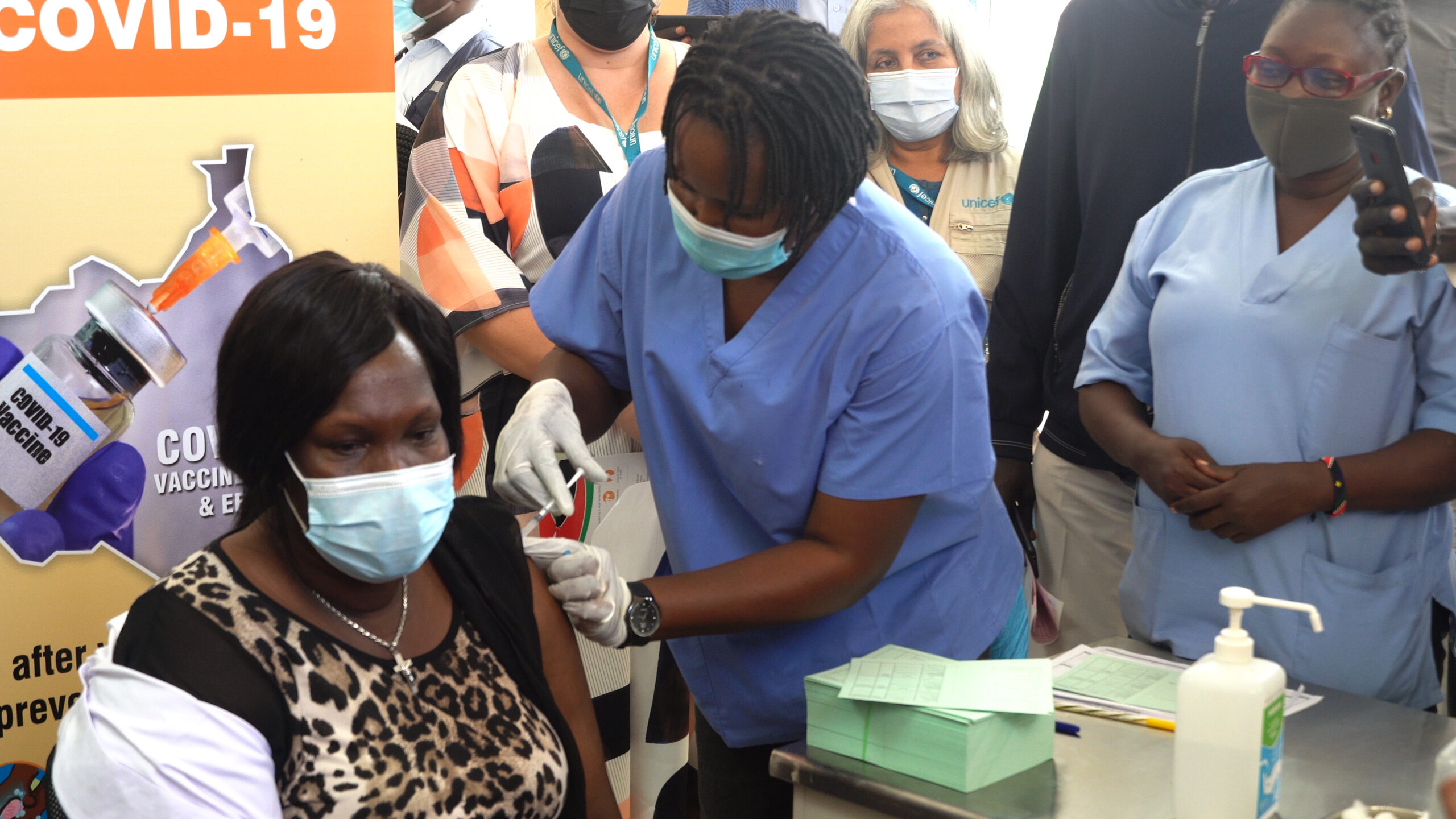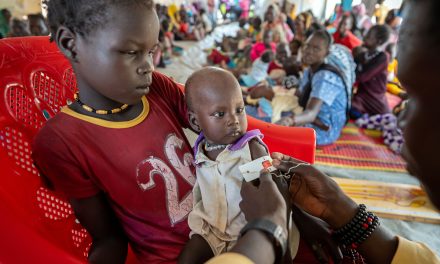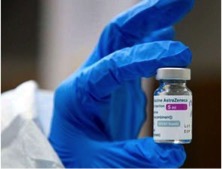
South Sudan’s slow vaccination, a major concern-whistle-blower

Juba, 14 May 2021
An official who wish to remain anonymous has told Juba Eco on Friday that COVID-19 vaccination in Juba is going on at a very slow speed, at the rate of [approximately] 700 people per day. So far [around] 17,000 vaccines have been injected. [Around] 117,000 vaccines are still unused in Juba.
“We’re left with less than 70 days to the expiry date of July 2021 (for the 132k vaccines donated by COVAX). If these vaccines expire, we will definitely lose trust of donors and support of the international community. We do not know if we will have the support to deliver the second dose. You and I know the government does not have money to buy vaccines.” The source said.
The source added that currently, there are only 3 centers in Juba: Juba Teaching Hospital, Juba Military Hospital and Police Hospital. No single vaccine has gone to the states and administrative areas. Ministry of Heath is yet to take the vaccines to the states because it has no money. It is depending (as always) on donors to support vaccine transportation and training of vaccinators at the state level.
“So far, some health organizations have expressed their interest to distribute vaccines to the states were they operate. Ministry Of Health (MOH) was not supportive of this idea. Why can’t MOH allow NGOs to help it transport vaccines to the states so we can have more health workers and people at risk vaccinated.” The source asked.
The source further said, “If we don’t act now, there will be consequences. The vaccines will expire. Those who donated it will not be happy. They will not support us because we are not serious. People who will get vaccinated at the end of June will bit not get their second jabs. Citizens will loose hope in the MOH and donors will be upset with the government or the National Taskforce on COVID19 Response.”
The source said, South Sudan already has a case with the international partners/donors regarding the expired AU/MTN vaccines. The MOH announced publicly that it will destroy the expired 60,000 doses of COVID-19 vaccines but THE World Health Organization (WHO) says the vaccines can still use them for upto 3 months or wait for further instructions. At least the expired vaccines are not destroyed. They are in the stores, waiting on DFCA and WHO for technical advice.
The source there are things that can still be done to that may remedy the situation:
(1) MOH should balance its cooperation with the in-country partners and the government (Presidency and COVID-19 Taskforce). COVID19 pandemic is an international emergency and shouldn’t be the business of MOH alone. The already existing Departments in the Ministry do not have COVID-19 expertise and will be naive for MOH to just rely on them or assign their staff to control COVID-19 response. This is why NGOs think MOH does not have capacity and they end up dominating every plan, execution and evaluation of every single project.
(2) MOH should reach out to the top leadership of the country for urgent help. I mean the MOH should be transparent with the Presidency and the National Taskforce in what is needed now.
(3) MOH should seek UNMISS support to provide logistics especially airlifting of COVID-19 vaccines to the state capitals or other possible areas. UNMISS is here to help and will not hesitate to support in vaccine deployment.
(4) Taskforce should intensify meetings and engagement of COVID-19 stakeholders to ensure the available vaccines are injected. Otherwise, there is no need to have the Taskforce that is relaxing when the MOH is left to struggle with limited resources and capacity. What can the Taskforce do better if not it is to ensure people are vaccinated and protected against COVID-19?
(5) The Presidency (or Cabinet?) should summon the National Taskforce and MOH leadership to explain why the vaccination is very slow, vaccines are not taken to states and vaccinators are not vaccinated.
(6) The COVAX facility members should just complete what they’ve started—-ensuring people in South Sudan have equal access to COVID-19 vaccines. hesitancy in fulfilling promises can cost South Sudan as a country. The country is not capable of buying vaccines, COVAX facility decided to help and vaccines are not going anywhere to the intended people.
(7) The Governors should start asking the MOH or central government as to why are vaccines not reaching their states/Adminstrative areas. They should be seen engaging and asking implementing partners in their states and explore the possibilities of transporting vaccines allocated to their respective states/administrative areas.
(8) Civil society and activists should advocate for vaccines to reach the state level.
In April, Dr. Richard Lako, South Sudan’s Covid-19 Incident Manager says when the 60,000 doses of COVID-19 from the African Union arrived in the country they were just two weeks from reaching their expiration date.
The 60 thousand does of the AstraZeneca vaccines from the AU arrived in South Sudan in late March.
Officials say the country’s Drugs and Food Authority blocked the use of the vaccines.
That’s because the policy of the authority is not to allow the use of any medicines that are is set to expire in less than three months.
(Disclaimer, This is to clarify that Dr. Richard Lako is not the whistle-blower who spoke to Juba Echo, his name is only mentioned in the above article because of an interview he gave the media in April and he only discussed issues of the 60,000 COVID-19 vaccines donated by AU/MTN to South Sudan.)



































